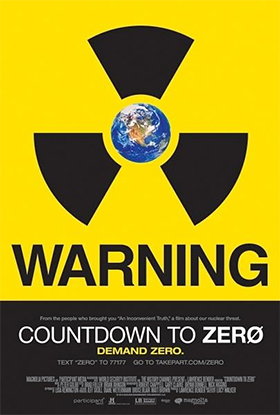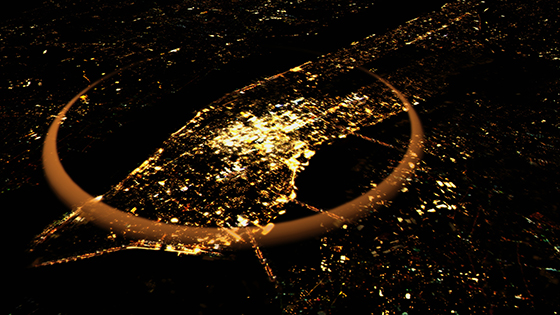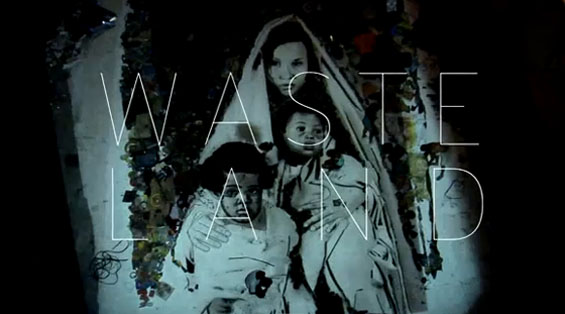Lucy Walker’s campaigning documentary is an absorbing warning about the dangers still posed by nuclear weapons, even though its optimism blurs the wider issues.
Did you know that the world teetered on the brink of a nuclear apocalypse in January 1995, when Russia mistook a Western weather satellite for a US strike?
This is just one of the startling facts in Countdown to Zero, produced by Lawrence Bender and co-funded by Participant Media and the World Security Institute, which explores how the nuclear threat has stayed with us ever since the Cold War ended.
Interviewing a variety of political leaders (Mikhail Gorbachev, Pervez Musharraf and Jimmy Carter) along with experts in the field (Joseph Cirincione) it paints a sobering portrait of a persistent, yet still largely hidden, menace.
Since the dangerous days of the Cuban Missile Crisis in 1962 or the Able Archer incident in 1983, it seemed that the collapse of the Soviet Union signified a new era where the superpowers relented from their deadly game of brinkmanship.
 The film shows through inventive graphics and research, the newer threats have emerged over the last 20 years: how states such as Pakistan and North Korea have acquired nuclear capability; the problems of enriched uranium on the black market; the near-miss incidents caused by human error and the prospect of terrorists using a dirty bomb.
The film shows through inventive graphics and research, the newer threats have emerged over the last 20 years: how states such as Pakistan and North Korea have acquired nuclear capability; the problems of enriched uranium on the black market; the near-miss incidents caused by human error and the prospect of terrorists using a dirty bomb.
Aside from the aforementioned incident in 1995, there are documented cases involving shocking lapses within the US military and the elusive figure of Dr. A.Q. Khan, the shadowy scientist mostly responsible for Pakistan (and maybe others) getting the bomb.
Director Lucy Walker didn’t originate the project, so it perhaps lacks the personal touch of her other recent film Waste Land, but she handles the information and interviews with efficiency and intelligence.
Where the film falls down slightly, is in the campaigning edge which creeps in too often: we sees pointless vox pop interviews where members of the public around the world are asked about nuclear weapons.
Is it really a shocker that most people aren’t experts on this?
There is also a disconnect between the premise of the film, which is the noble aim of reducing global nuclear stocks to zero, and the dark side of humanity which it reveals.
After watching it you may be more convinced than ever that zero nuclear weapons is necessary but virtually impossible, so long as nation states continue to have them or pursue them.
In the last decade US foreign policy in the Middle East has probably helped accelerate proliferation, with states such as Iran seeing it as a necessary deterrent to what they regard as Western aggression (Tony Blair’s presence in the film only accentuates this point).
The example given in the film of South Africa dismantling their programme is misleading, as it remains hard not to conclude that the racist Apartheid regime simply didn’t wanting the incoming ANC government to have it.
The fact that Israel officially deny the existence of their nuclear weapons program (which conveniently allows them to opt out of the Nuclear Non-Proliferation Treaty) shows the extent to which even developed countries are literally in a state of denial about them.
One of the paradoxes of a nuclear arsenal is that countries feel safer with deadly weapons that they cannot use, as to do so would trigger their own destruction.
This dilemma still haunts governments today and even though President Obama has in theory pledged that zero is an option for the US, the current state of world affairs suggests it may remain a distant dream.
Speaking of which, at one point we see Osama bin Laden on screen and watching this film just days after his death was an interesting (if chilling) experience, which highlighted a pressing problem documentaries face in depicting current affairs.
This film premiered at Sundance in January 2010 and screened to acclaim at Cannes later in May of that year, but has taken over a year to reach British cinema screens.
In that time we have seen such seismic global events as the Wikileaks revelations, the Arab Spring and the death of the world’s most wanted terrorist (the latter may indeed have grave implications for US/Pakistan relations).
As it happens the core of Countdown to Zero is still relevant, but in this day and age why does it take so long for a documentary like this to come out and risk being out of date?
Perhaps a multi-platform release around the buzz of opening at festivals might be an option for more arthouse films like this.
That being said, despite the ambitious optimism of the film’s campaign, this is still one that demands to be seen as it is an alarming reminder of the dark, self-destructive impulses of mankind.
> Official site
> Reviews of Countdown to Zero at Cannes 2010
> Find out more about countries with nuclear weapons at Wikipedia

